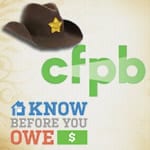 I know you don’t want to hear this, but the holidays are about 3 months away. Are you ready to do some shopping?
I know you don’t want to hear this, but the holidays are about 3 months away. Are you ready to do some shopping?
If the answer is “no”, then consider this: retailers are bringing back layaway plans. They’ve noticed that people are spending less because money is tight and they want to keep that holiday cash flowing.
Layaway plans offer you the convenience of making payments over time so that you can budget your purchases.
What you should know about layaway plans:
- You can’t take your purchase home with you until it is paid in full. The store keeps it until you make your final payment.
- There is typically a small fee for the layaway plan.
- If you change your mind there can be a cancellation fee as well.
- Payment plans are typically 60-90 days.
Why not use your credit card instead? With a credit card you might pay more in interest and take longer to pay it off. You may also spend more because you can take your purchases home with you, giving you a satisfied (but very wrong) feeling that your work is done.
Layaway plans could be the better option if you cannot afford to pay for your purchase in one payment.
Isn’t it better to just wait for a sale?
What if it doesn’t go on sale? You have to decide if it’s better to buy now on layaway or wait until Black Friday when there may, or may not, be a lower price. If Black Friday is your choice, then you can create your own layaway plan by saving money each pay period so you have the cash to make the purchase. That way, whether it’s on sale or not, you can get that special gift.
Either way, the holidays are coming and that is the time of year that we tend to break our budgets. Start early and spread out your purchases.








